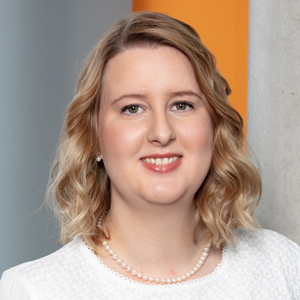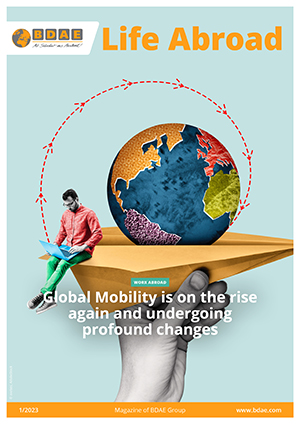Menstrual pain: Spain votes in favour of paid menstrual leave.
Spain will be the first country in Europe to introduce paid leave during menstruation. This new measure aims to break the taboo around periods, according to the Spanish government.
On average, one in four menstruating women suffer from agonising menstrual cramps that manifest in having to take medication and being unable to go about their daily activities, according to a scientific study.
Yet only a handful of countries offer those suffering from such pain the opportunity to take paid menstrual leave. As of 15 February 2023, Spain is the first country in Europe with this option.
Irene Montero, the Minister of Equality of the Spanish left-wing government, called this day a "historic day of progress in women's rights". And while some people may argue that paid menstrual leave is not the right way to achieve gender equality, the measure was praised by many.

Painful periods: still a taboo in the workplace
Menstruation is experimented by at least 50% of the population. And for many of those who experience it, it can be quite painful: heavy bleeding, nausea, headaches…
The medical name for painful menstrual cramps is dysmenorrhea. It can be caused by the natural chemicals. But in some cases, it can be caused by underlying disorders such as fibrosis or endometriosis.
This pain has naturally an effect on the work performance of people suffering from it. According to a 2019 survey, 80.7% of the persons surveyed reported “presenteeism” during their period, meaning that while they came to work, their productivity was negatively affected.
This survey also estimates that on average, people who have a menstrual cycle lose 9 days of productivity because of their menstruations.
So how can we adapt the workplace to those physiological needs?
One of the main problem is that discussing your menstrual problems at work can still be a bit of a taboo topic. Many hide their symptoms, pretend to have the flu when calling in sick instead of stating it’s because of their periods. Others wear dark trousers and hide their tampons in their sleeves when they have to walk to the restroom to change.
In the symposium “menstruation in RED on the agenda”, Marlies Bongers, professor in gynecology at the Maasricht university, state that a way to change it is to talk about it. Periods are a natural process and no one should feel ashamed because of them. Therefore it is important to create a conversation between workers and employees to make sure everyone can feel safe and supported.
Menstrual leave: a good solution?
One of the solutions brought up by Marlies Bongers to support menstruating people is menstrual leave. This measure is taking more and more place in the political space today. But what is it really and does it work?
The paid menstrual leave
The new legislation in Spain grants time off to workers experiencing pain during their periods in order to rest. That time off will be paid thanks to the state social security system. The sick leave will be prescribed by a doctor, and the law as of today does not specify a specific number of days doctors will be able to grant.
While Spain is the first European country to pass such a law, it is not the first time it has been debated in Europe and today the idea is gaining more and more supporters.
In Italy, in 2017, a policy for companies to offer 3 days paid leave for people suffering from dysmenorrhea was almost enacted and in 2022, one of the candidates of the French Presidential election, Anne Hidalgo, the current mayor of Paris, had such a measure in her program.
But while it may be a rather new concept in Europe, many countries have already installed menstrual leave in their work regulations. Japan, South Korea, Taiwan, Indonesia, and Zambia all have some sort of policies allowing menstruating people extra rest.
In Japan, for example, menstrual leave exists since 1947 and in Zambia, since 2015, women get one day off called “Mother’s day” every month.
 © AS Photo Family, AdobeStock
© AS Photo Family, AdobeStock
Does it really work?
There is a debate however about the efficacity of such a paid leave. Some feminist associations are scared that introducing additional leave because of the menstrual cycle will disincentivise companies to employ women. Also it could help perpetuate the belief that period are a sickness and that people who have them are weaker than those who don’t.
Another issue is: will people who are entitled to this right to rest actually use it?
In Japan for example, many don’t use the time off they are granted by law, by fear of being badly seen by their superiors and of being perceived as weak. A study from 2022 estimates that less than 10% of menstruating workers take their menstrual leave.
And if women in South Korea who choose not to take their leaves get paid more, nothing obliges Japan companies to do the same. Therefore, menstrual leave will not fix the problem on its own. There needs to be a broader discussion about this topic, more access to healthcare for people suffering from period pain and less taboo surrounding periods.
In conclusion, the way to go is still very long and it might take some time before people with periods are seen as equals to those who don’t. But, paid menstrual leave is still a big step and even more so in a country with a machismo culture such as Spain.
“History of feminism is a story of persistence in the face of social injustice.” – UN Human Rights Council
Praise from the UN Human Rights Council
The UN humans’ rights council has applauded the new law in a press release and reminded us that “legislative measures are key elements to ensure that every person can live free and equal in dignity and rights”. Paid menstrual leave give women the freedom to choose what they would like to do, and it also opens up an important conversation around periods, which can pave the way to more social progress.
 © rawpixel.com, AdobeStock
© rawpixel.com, AdobeStock
How can I make my workplace more period friendly?
Here are some things you and your company could try to implement to make the life of menstruating people easier.
- Guarantee access to toilets. When menstruating, it is essential to have easy access to a bathroom and to a bin: Making sure your workplace has this can be a good place to start to ensure the wellbeing of everybody.
- Be mindful about colours. Whether it is the colour the uniforms or the colour you choose for office seats, choosing a darker colour like black can be beneficial for menstruating people. It helps take the stress of having a blood stain away and help make people with a cycle less self conscient.
- Make sure people haves places to rest. Menstruating takes a toll on your body and on your mental health. It is important for people going through that process to have a space where they can just be. One way to help them would be to offer access to a leisure room, to offer a mindfulness program or yoga mats to allow people to stretch which can help reduce menstrual cramps.
- Offer access to products. One way to help reduce stress for menstruating people can be to give access to tampons and cups, as one can sometimes be surprised by their periods and not have products available. Other way to help reduce discomfort can be to provide painkillers or hot water bottles to ease up cramps, or to provide fans to help people in their menopause combat hot flushes.
- Listen and trust. Breaking the taboo surrounding periods will take time, but the best place to start is by encouraging conversations. Listen to the people menstruating around you, try to understand and if you can, be accommodating. Periods are a hard time, and not an excuse to slack off or not come in to work.
 © ReisMedia, AdobeStock
© ReisMedia, AdobeStock


